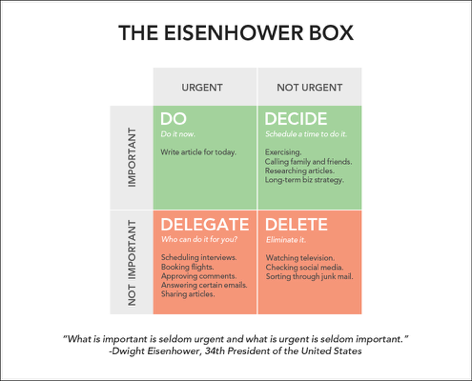The following was written by Rachel Brunson, The Learning Center’s Assistant Director
Rachel graduated from USF’s School of Education with a Master of Arts in Organization & Leadership (emphasis in Higher Education & Student Affairs) in 2013, after receiving her Bachelors degree in English from Notre Dame de Namur University in 2011. She is originally from Angels Camp, CA, a small town in the foothills of the Sierra Nevada mountains. Rachel is passionate about enriching student success and impacting student persistence through collaborative learning and peer leadership; she is grateful to work with The Learning, Writing, and Speaking Centers to cultivate individualized learning environments for USF students. Outside of work, Rachel enjoys reading, swimming, hiking, playing the piano, watching basketball, and traveling with family and friends.
I recently came across a Vox article recommended by Pocket titled, “The Myth of Self-Control.” As self-control is something I find myself struggling with from time-to-time (or more), I immediately opened the article and began reading. According to the article, based on current and past psychological research, resisting temptation is an on-going battle for so many of us. As students, we struggle with the decision to study, write that paper, go to class, schedule that tutoring appointment, or meet with our professor during office hours. We want to be studious and meet our academic goals, but in the moment, the temptation to do something else is always greater. Afterwards, we may feel disappointed in ourselves for letting temptation get the better of us. While we may give in to our temptations, there’s no reason to give up on ourselves nor our goals.
What follows are several tips/strategies recommended in the Vox article and/or by myself. Hopefully you find something here to help you meet your academic goals. And if you have identified other strategies that work for you, I hope that you will share them with us via social media or via email at LWSC@usfca.edu.
Connect Goals to Values
Our values are those ideas, things and people we believe to be most important. When we decide to accomplish something, set goals, we’re more likely to accomplish those goals that connect to our values. As you think about those tasks or goals that are hard to accomplish, take time to understand how those goals relate to your values. To learn more about connecting your values and goals, I recommend checking out the article “The Value of Goals” on the Psychology Today website.
Goal and Implementation Intentions
When setting goals for yourself, consider possible stumbling blocks to your success and plan for them. Setting simple goals related to your larger goals is appropriate. For example, “In preparation for my upcoming exam, I will read and summarize passages from Chapters 3-5 of my text.” To ensure that you stay on track with accomplishing your goals, consider adding an implementation intention. For example, “To prevent myself from getting distracted by incoming text messages while I study, I will turn off my phone and keep it in my bag so that it is out of sight.” Or, “When I get distracted by negative thoughts during an exam I will implement positive thinking and controlled breathing to refocus.” Use our 7-Step Goal Setting Worksheet to start the process of creating your goals and reflecting on those issues that might get in the way of your accomplishing them.
Mental Depletion
You may notice that there are times of the day when you work best and make the best decisions. For some of us, it’s in the mornings after we’re awake. During this time of the day, we’re usually most productive and resist many of our temptations. Make this time of day, the time that you tackle the hard stuff and leave the easier decisions for later in the day.
Develop Habits
Regular habits are easy to maintain because they are well, habits. People who follow a regular schedule, waking and sleeping at the same time, studying at the same time, and exercising at the same time allow you to forgo making difficult decisions because there’s no decision to make. You’ve built a habit and a schedule that’s easy to follow, and when distractions or temptation throw themselves in your path, it’s easier to say “no” because there’s already something else you are supposed to be doing. Building habits, or regular routines, can reduce the stress experienced from having to having to make decisions. The more structure you build into your schedule; the less stress you experience with decision-making. Try utilizing the 7-Day Study Plan found under Resources for Time Management and Organization on the Learning Center Academic Skills web page.
Enjoy What You Do
Instead of doing what you “have to do” do the things that you “want to do.” If you enjoy socializing, study with a group. And yes, there are ways to get in socializing with quality study time. Consider putting together a productive study group – reach out if we can help!
Reward Yourself
If you can’t think ways to make what you “have to do” something you “want to do” determine ways to reward yourself after accomplishing those hard to do tasks. Set aside a specific amount of time to get some quality study done and reward yourself with a tasty treat or bonding time with your friends. Break-up those long study sessions with 5-10 minute breaks for day-dreaming, watching your favorite cate video, or taking a quick walk. When you come back, you’ll feel refreshed and ready to learn more.
Change How You See Temptations
Sleep is important to maintain healthy brain functioning and productivity during the day. If you love sleep as much as I do, you may find yourself hitting the snooze button one too many times. Getting quality sack time is important, but so is quality time experiencing life. When you struggle to get out of bed, try thinking about all of the wonderful adventures you may be forgoing by staying under the blankets. If you can’t think of any can’t miss opportunities, plan some so that you always have a reason to get up and go out into the world.
Accountability Partners
Like many things in life, overcoming temptation and getting things done requires a little help/support. In college, there are so many people available to walk with us on our journey. They are our friends, faculty, advisors, tutors, peer leaders, and mentors. The Learning Center specifically provides Peer Tutors and Academic Skills Coaches to serve as accountability partners. Schedule a weekly appointment to discuss strategies and resources, discuss your progress, and develop plans for the coming weeks. (See instructions for scheduling a Peer Tutoring Appointment or an Academic Skills Coaching (ASC) Appointment.)
Learn from Failure
These are only a few strategies to keep you on pace to accomplish your goals. If you try these strategies once and they do not work for you take time to reflect on what did work for you, what got in the way of accomplishing your goals, and alter your approach or identify new strategies that can work for you. Only you know what works best for you.
 The following was written by Kate Xiaotian Zhang, the Supplemental Instruction Graduate Intern.
The following was written by Kate Xiaotian Zhang, the Supplemental Instruction Graduate Intern. .jpg)




